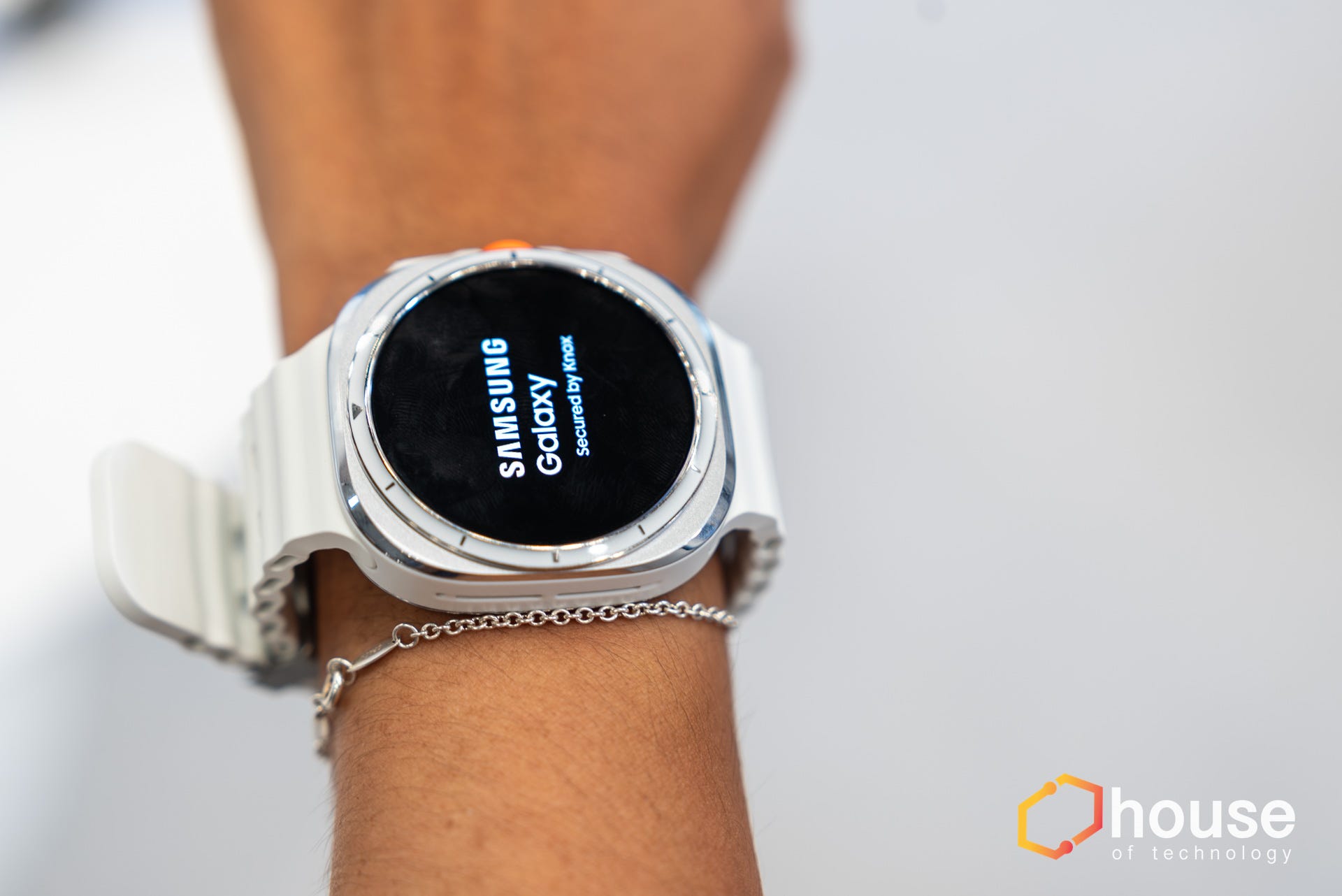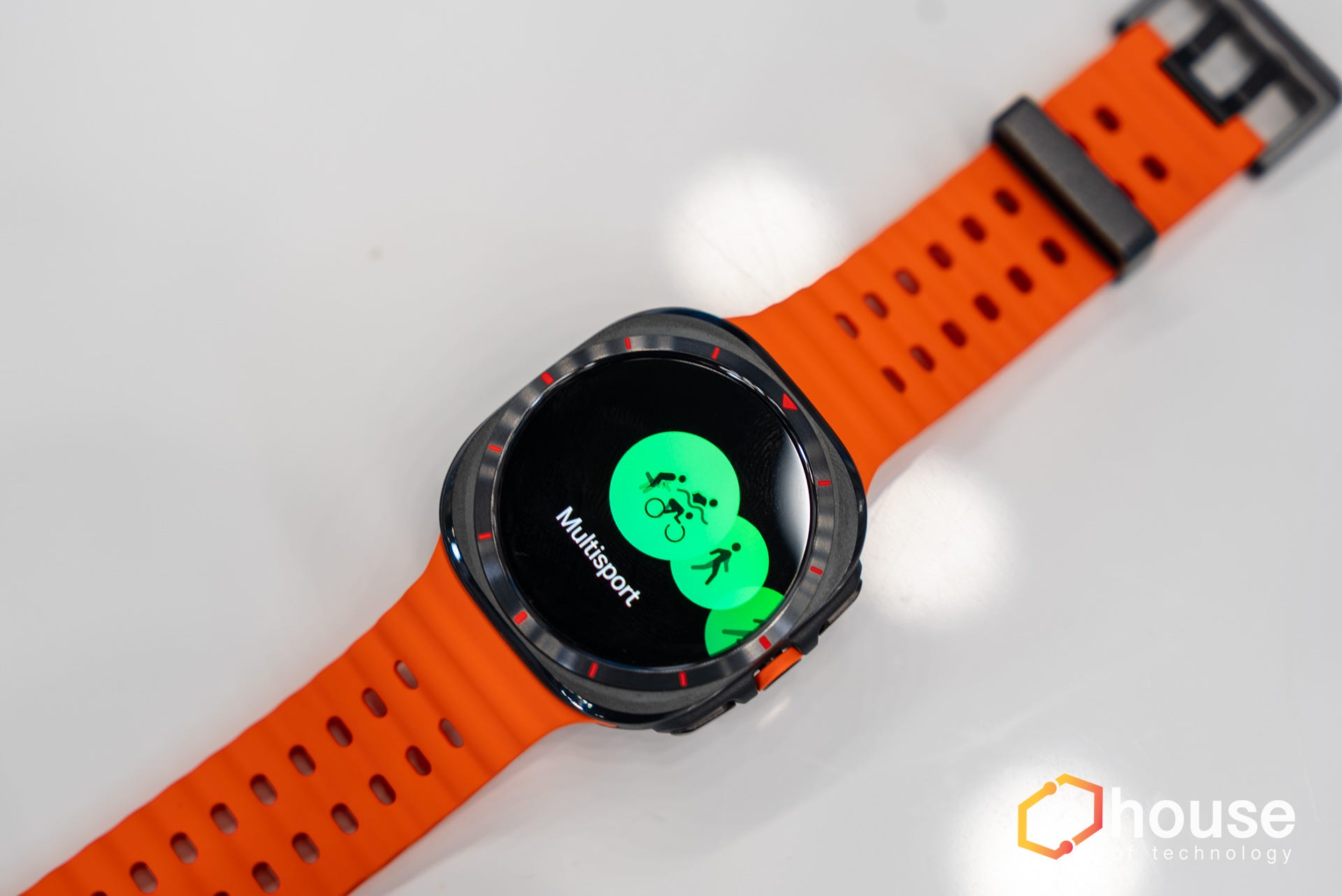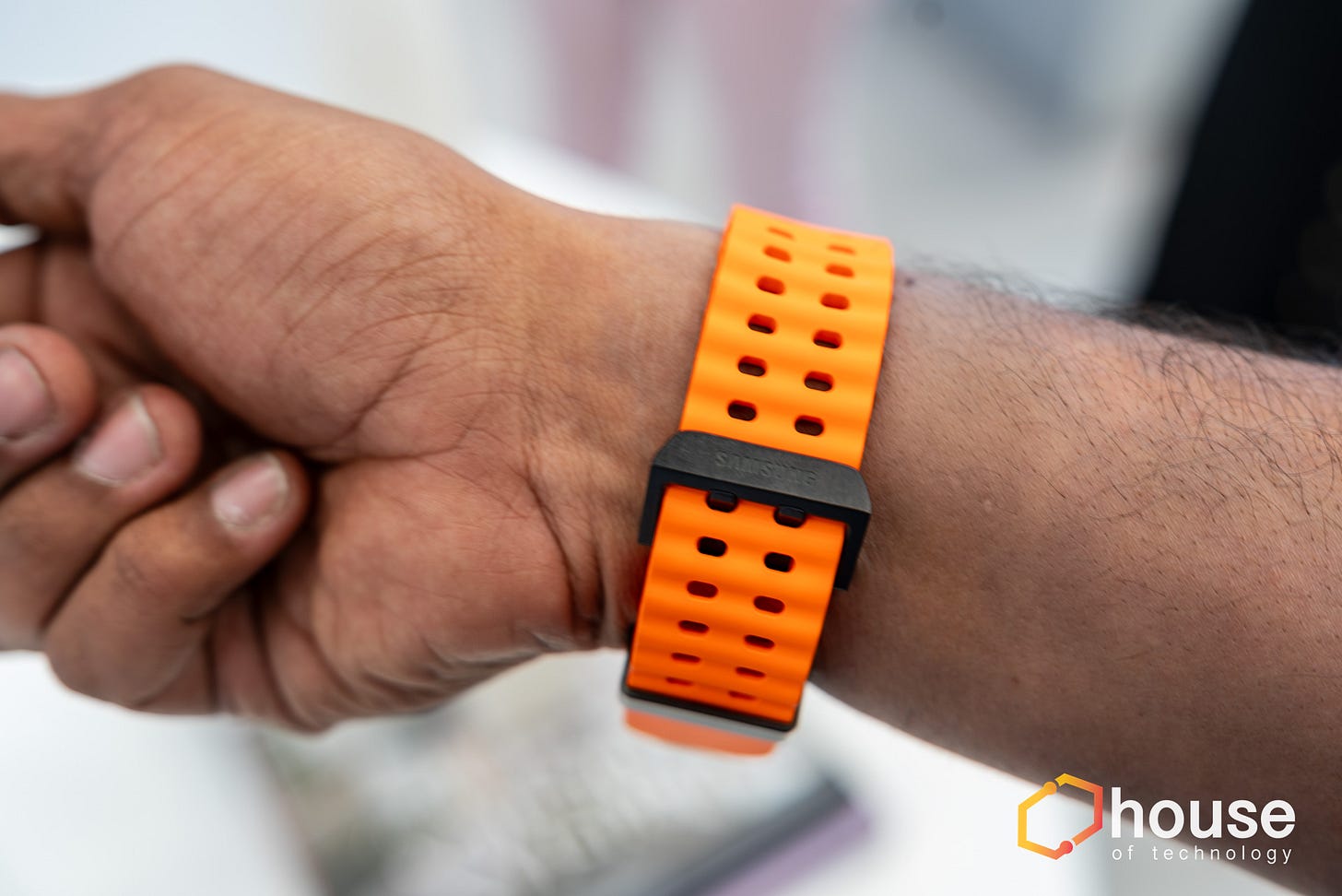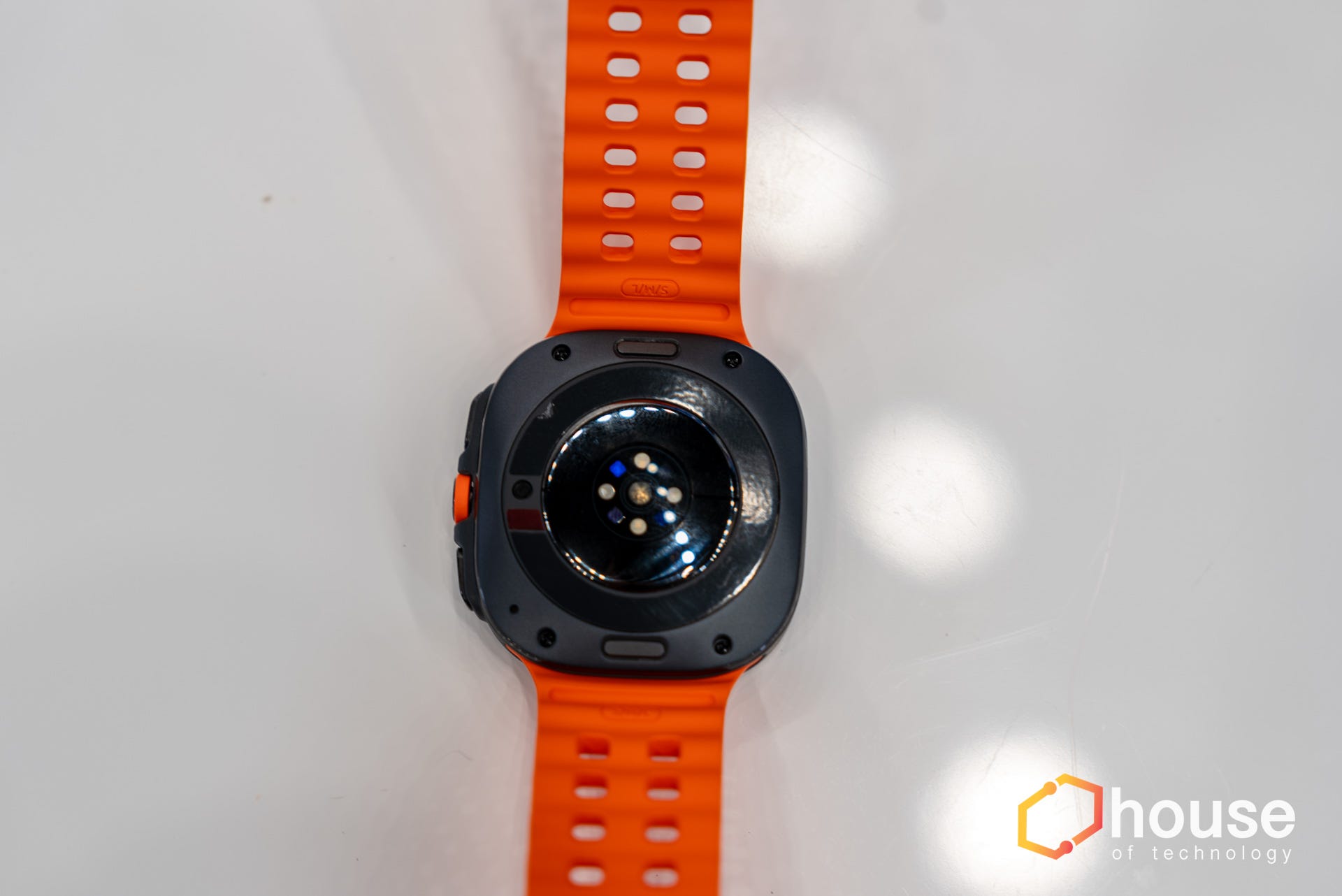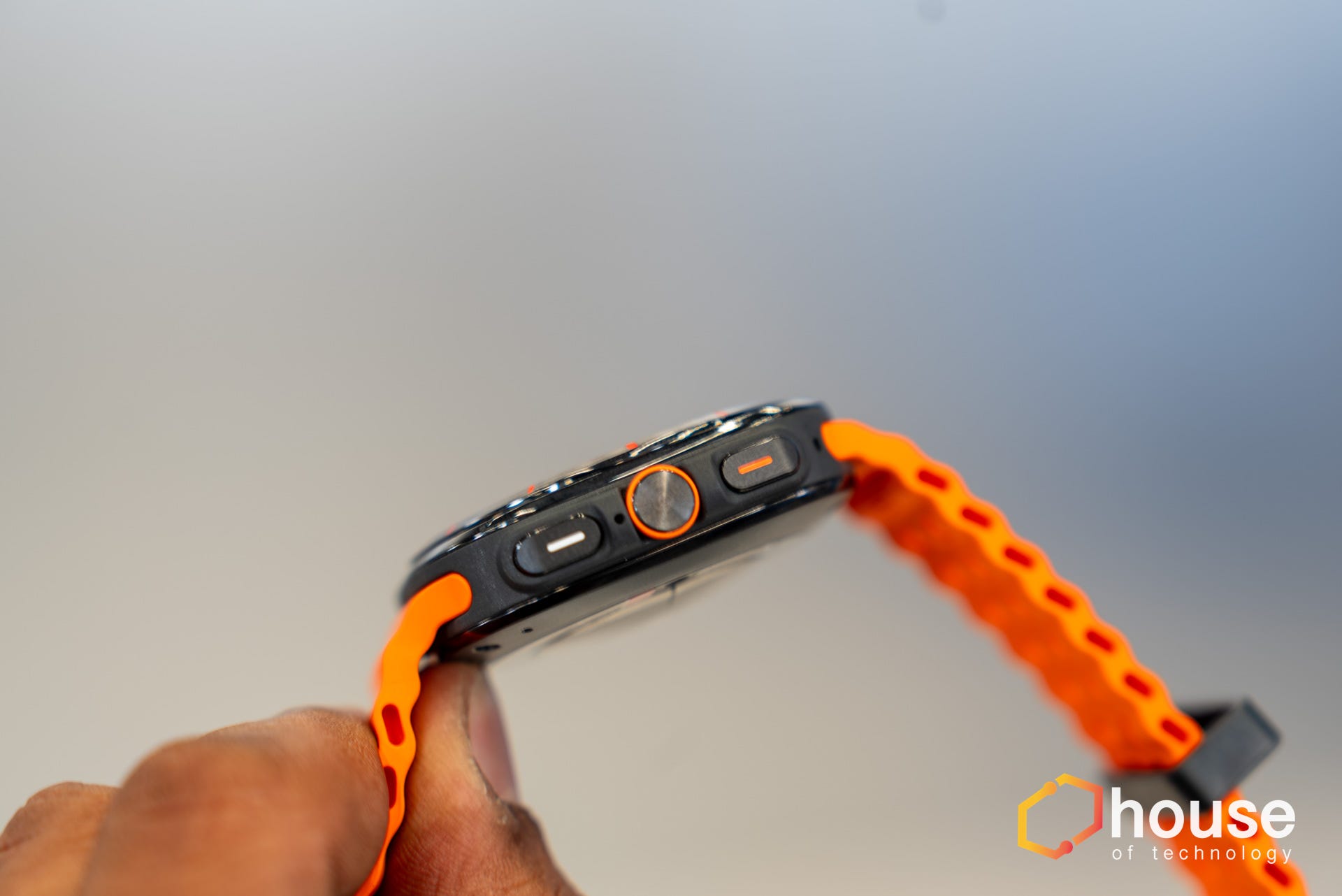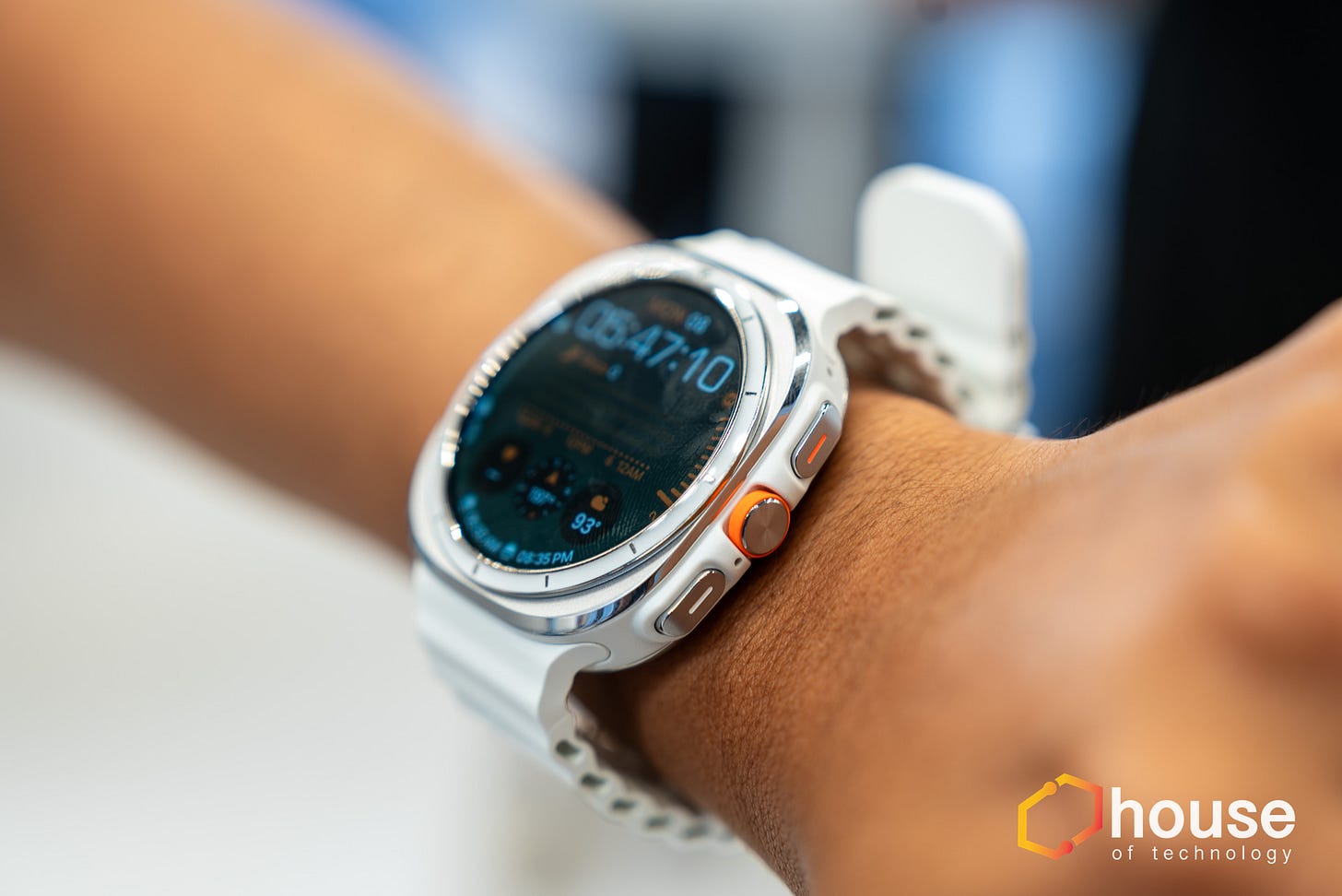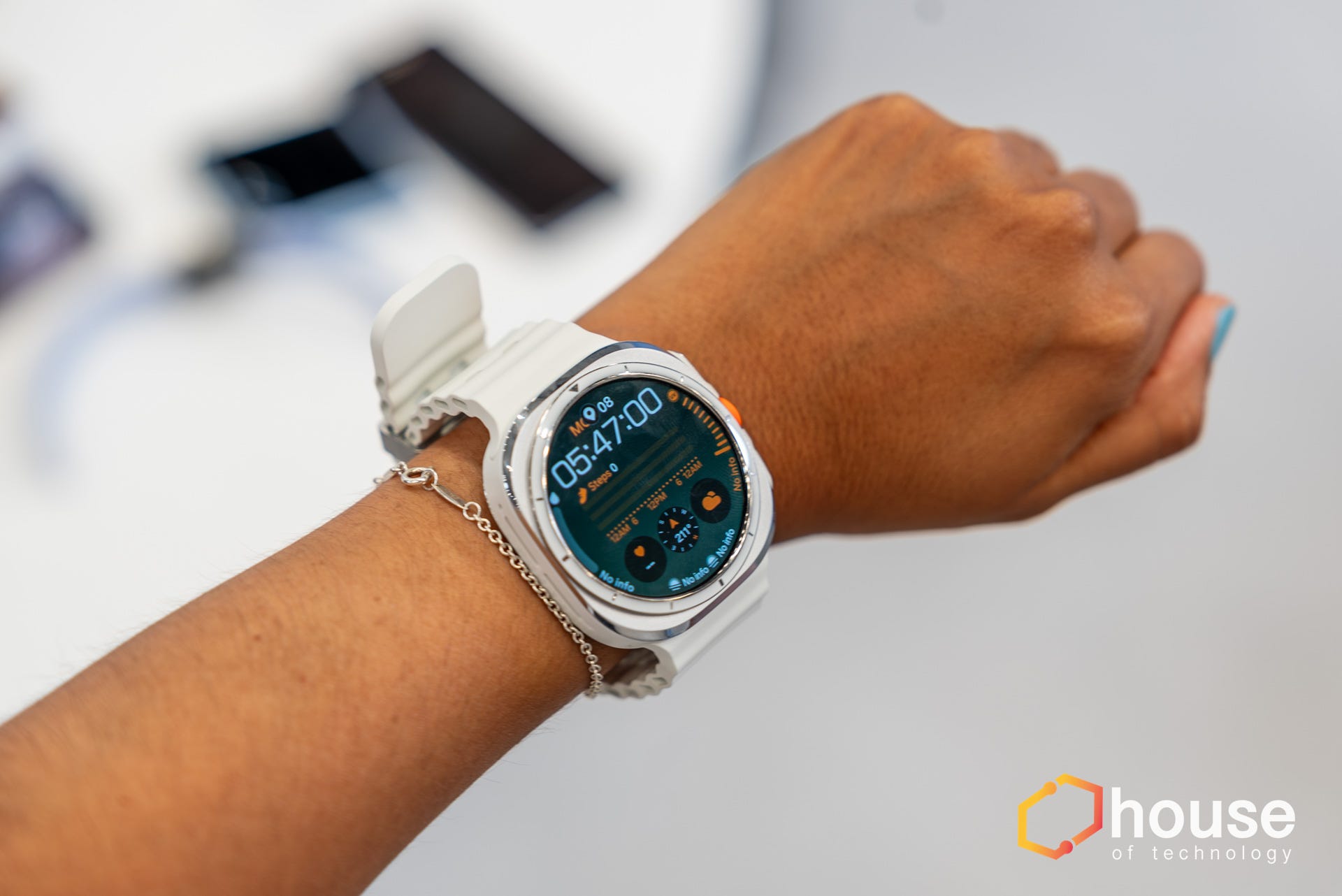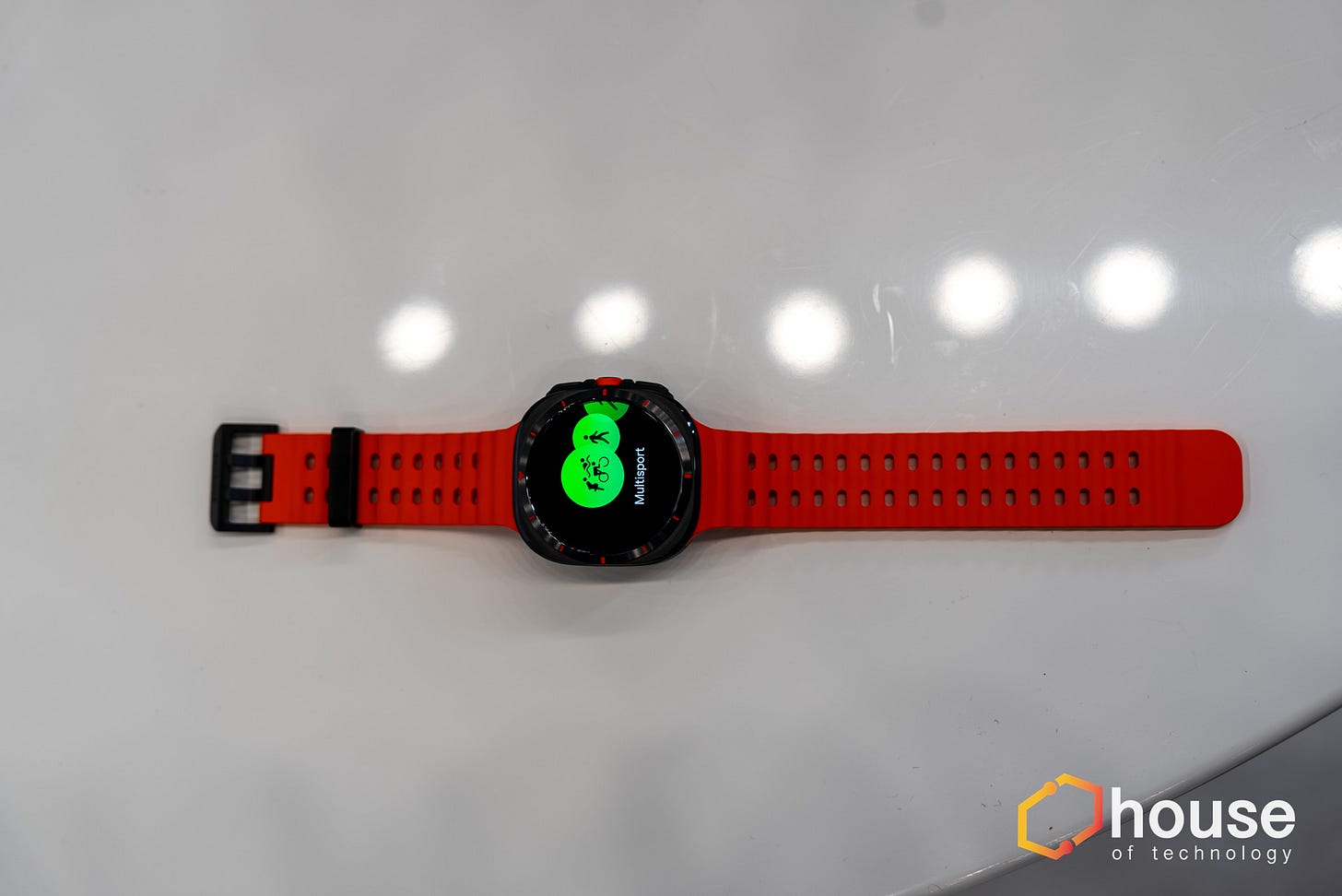The Galaxy Watch Ultra ushers in a new era of premium Samsung wearables
It looks like an Apple Watch, but it does so much more. It's also the first wearable to be FDA-approved to help diagnose Sleep Apnea.
I love the Galaxy Watch 6 Classic. It’s one of my favorite wearables ever, and Samsung Health is a feature-rich health tracking suite that lays out a lot of information in a very user-friendly way. Although Samsung launched the Galaxy Watch 7 today, the Galaxy Watch Ultra is shaping up to be my new favorite wearable for Android phones.
Featuring a familiar design — yes, it shares many of the hallmarks of the Apple Watch Ultra design, including the orange loop band design — it brings the best of Samsung Health to a more premium device designed for longer battery life, enhanced durability, and some health-saving features.
This is the Galaxy Watch Ultra, and I quite like it.
Energy & Wellness
The Galaxy Watch Ultra has all the same health features as the Galaxy Watch 6 and the other Samsung devices that came before it, but it also ushers in a few new eras for Samsung.
Galaxy AI isn’t limited to Samsung’s new phones; it also comes with new wearables, including the new Galaxy Ring. I’ve been waiting for Samsung to bring AI to its health devices, and its first implementation leaves me cautiously optimistic. You can’t actively interact with the AI like you can on the Whoop band, but the Galaxy Watch Ultra does use AI to generate an Energy Score.
Much like Oura’s Readiness score, Samsung’s Energy Score helps quantify how you’re feeling. It provides a number — between 1 and 100 — generated by measuring your daily condition across seven metrics. A lower score means you need to rest and recover, while a higher score means you can push yourself.
Samsung is also using AI to generate Wellness Tips, which are designed to provide meaningful and actionable insights to improve your overall health. Samsung wearables collect a lot of data across many metrics, so I hope that it can use AI to generate insights and tips that can truly help improve someone’s health.
The first FDA-approved wearable for Sleep Apnea
This is a standout feature of the Galaxy Watch Ultra; it’s the first wearable to be FDA-approved for detecting Sleep Apnea. We’ve seen numerous reports of the Apple Watch saving lives, and this feature means the Galaxy Watch Ultra will also save numerous lives.
The Galaxy Watch Ultra doesn’t track Sleep Apnea in real-time, nor does it confirm that you have Sleep Apnea. Instead, it focuses on tracking your sleep, understanding your body’s patterns, and using this data to determine whether you should seek medical advice. This is a better way to offer this feature, as it ensures Samsung won’t face legal pressure for misdiagnosing sleep apnea (or not at all) but still allows the Galaxy Watch Ultra to save lives.
Sleep Apnea detection means the Galaxy Watch Ultra will save lives… literally.
Given that blood pressure monitoring is available outside the US but still doesn’t have FDA approval stateside, it’s a pleasant surprise that Samsung was able to get this feature approved by the FDA. I do hope we’ll see the blood pressure monitoring approved for the US market sooner rather than later; I’ve been testing it on the Galaxy Watch 6 Classic (after taking a few steps to get it working), and it’s a great feature that’s accurate enough to be my portable blood pressure monitor of choice.
Built for extreme conditions
Much like the Apple Watch Ultra, the Galaxy Watch Ultra is designed for extreme conditions and professional workouts, such as extreme hikes or deep sea diving. Yet, it also offers tangible benefits even if you’re not into extreme workouts.
It’s water-resistant to a depth of 100 meters and can handle harsh outdoor conditions. It is made from aerospace-grade titanium and features MIL-STD 810H drop protection. Samsung says the 591 mAh battery can track up to 48 hours of continuous workouts, although it’s unclear how long the battery lasts under normal conditions.
The rear features an all-new bioactivity sensor with three times as many LED sensors, designed to measure your heart rate more accurately during workouts and while you’re asleep. I can’t wait to put this to the test, especially against the Pixel Watch 2, which has excellent heart rate tracking. There’s also Dual GPS with support for the L1 and L5 frequency bands, and the Galaxy Watch Ultra will latch onto whichever band is more suited for your current environment.
An Ultra era of wearables
The new era of Samsung wearables has arrived. It’s all about AI, more expensive devices, and better health tracking. The Galaxy Watch 7 was announced alongside the Watch Ultra but received little more than a footnote. Samsung’s foray into premium wearables is interesting because the company has adopted a square body with a round display. It’s unique but won’t be to everyone’s taste.
Samsung called it an Ultra and has adopted a very familiar design for Apple Watch Ultra users. That’s the crux of some criticism the company is likely to receive: it looks like an Apple Watch Ultra, right down to the squared design.
Yet, judging it by its looks means misunderstanding the broader picture. Samsung Health is superior to Apple Health, at least when it comes to tracking health metrics. Samsung wearables are better than the Apple Watch for capturing valuable data. Sleep is far superior on a Galaxy Watch than on an Apple Watch, even with Apple finally fixing its Sleep tracking in WatchOS 11.
The Galaxy Watch Ultra may look like an Apple Watch Ultra, but it retains some of the DNA that makes Samsung wearables so compelling. It can also measure far more metrics than even the Apple Watch Ultra, so if you can get past the looks – and you don’t use an iPhone as this only works with Android devices – the Galaxy Watch Ultra will likely be the best wearable for health tracking this year.



